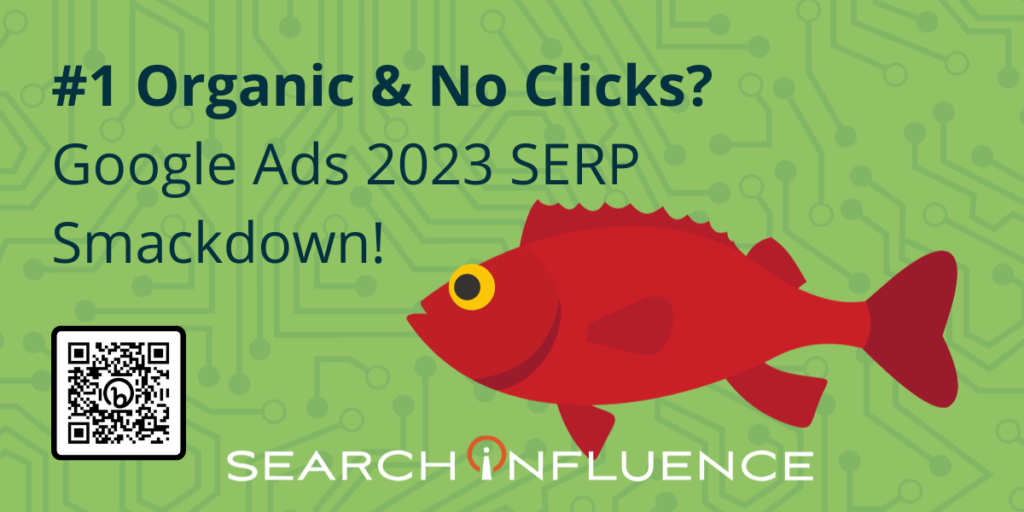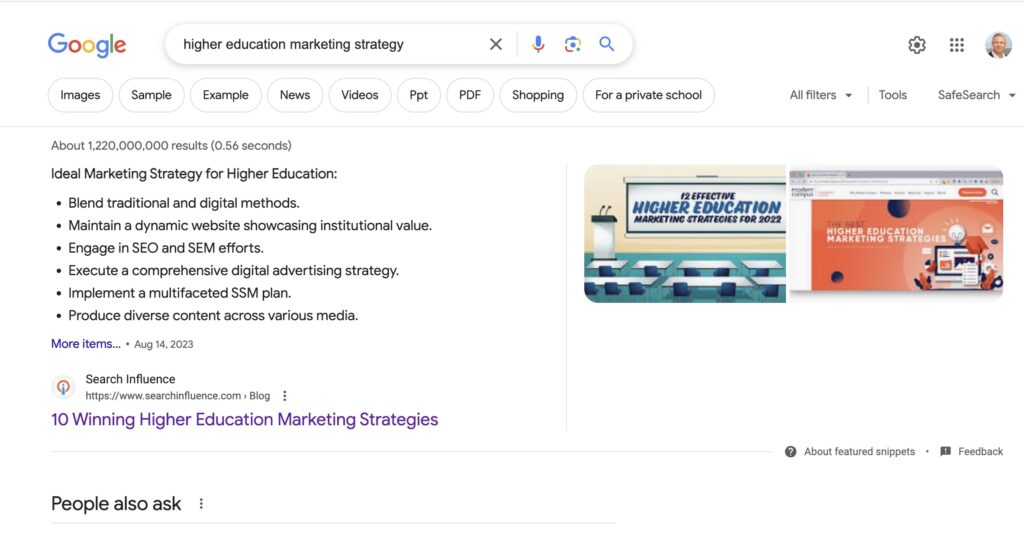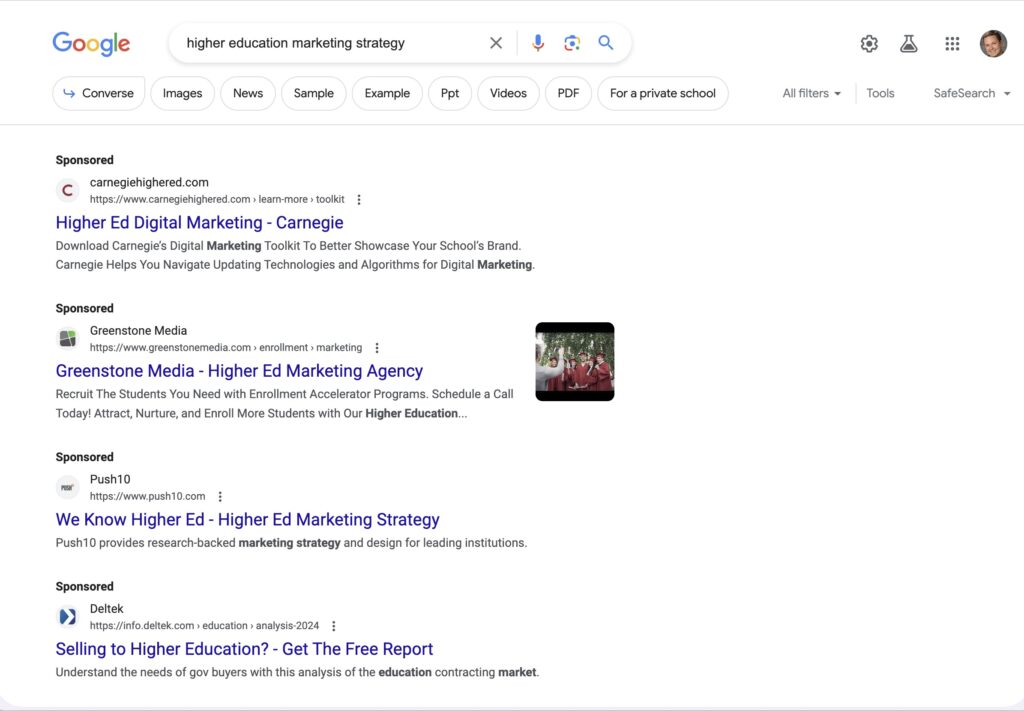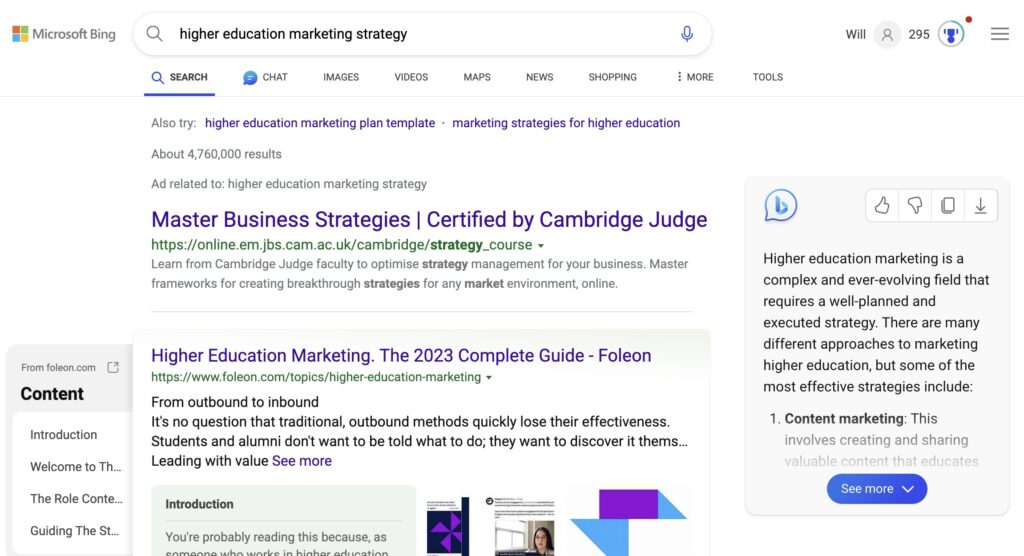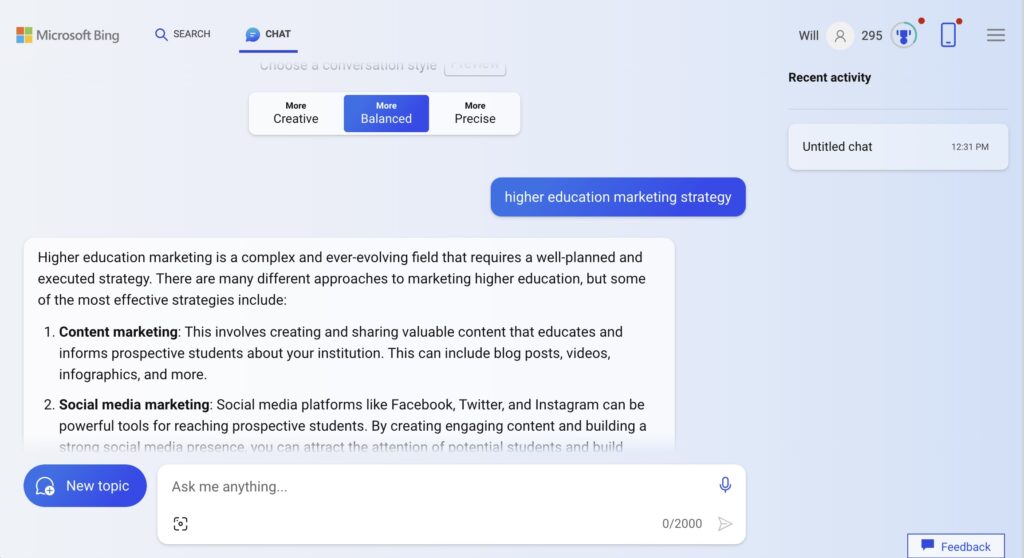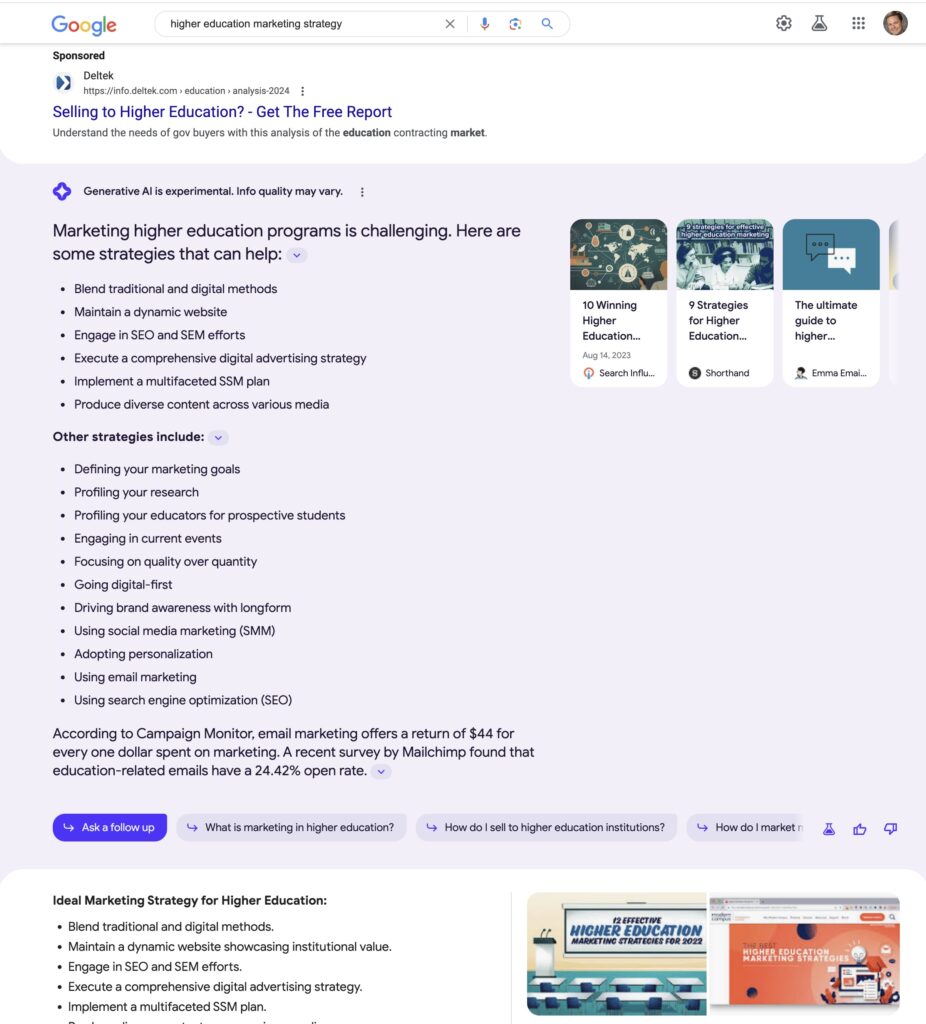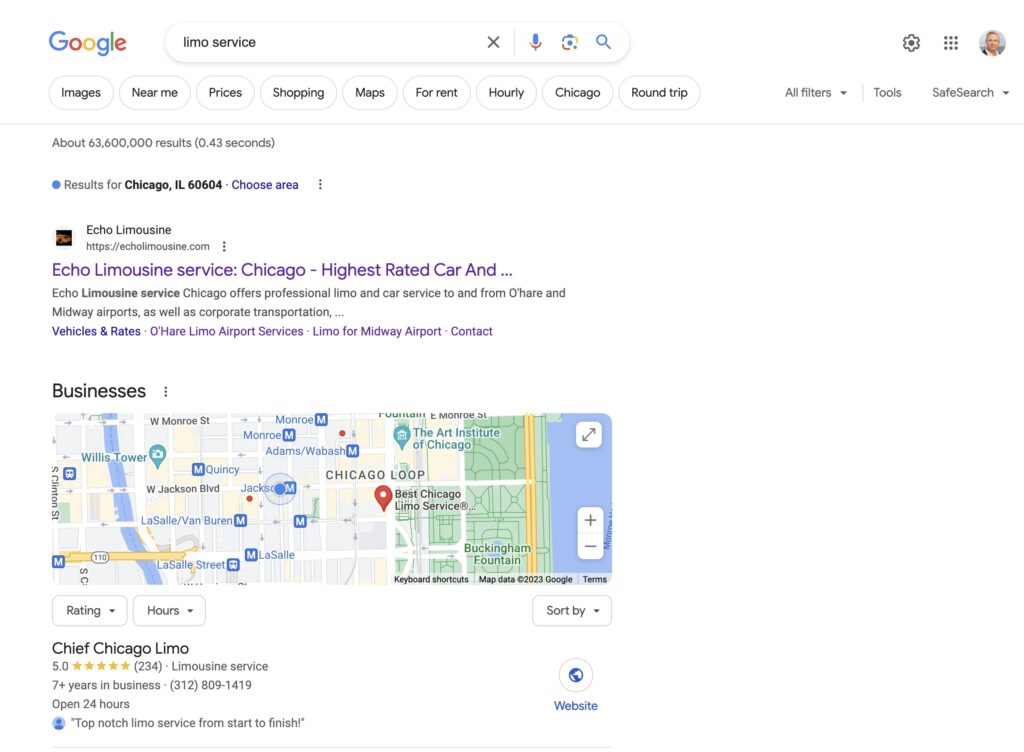#1 Organic & No Clicks? Google Ads 2023 SERP Smackdown!
October 26th, 2023 by
High Ranking Keywords and Low Traffic?
Are algorithm updates and AI just a red herring for more Google Ads in 2023?
It’s not just a #1 position. It’s a rich snippet. And a full-feature rich snippet with images, a bulleted list, and everything.
But the CTR (click-through rate) is a measly 3%.
We searched for the cause. Was it not a real ranking? Were we seeing a personalized search?
Screenshot of “Higher Education Marketing Strategy” query on Google
No. It was Google!
Google Ads, to be specific.
And for some searches, Google SGE, the new Search Generative Experience.
We discovered that there was now a big fat pack of ads over the top of organic results. Where there used to be a couple of small ads, there are now four, with site links and lots of white space.
Depending on the search, you have to scroll once, and sometimes twice, to get to the organic results.
Screenshot of “Higher Education Marketing Strategy” query on Google from a non-SI account.
Why would Google want to suppress organic search results? Let’s look at some examples and see what we find.
While the SEO community has been worrying about Google Algorithm updates and the impact of AI, Google has quietly expanded the real estate devoted to Google Ads in 2023.
Perhaps the talk of algorithm updates and AI was a red herring.
Google SERP (Search Engine Results Page) 2023
2023 was a busy year for Google. In addition to several algorithm updates, Google had to contend with AI, both in its index and in its user interface.
AI, specifically the use of Large Language Models, exploded in early 2023. Tools for AI-enabled content creation, previously on the fringe, became mainstream.
In addition to a flood of new content clogging up its index, Google — already an AI-powered platform — brought some of that intelligence to the search interface in the form of SGE (Search Generative Experience).
Bing was the first to market with an AI-powered search experience. But, since it required the Microsoft Edge web browser, it only got a little play outside the Windows world.
That little box on the right is the OpenAI-powered chat module.
When BingGPT first launched, it was much more like the current Google interface, where the AI-powered elements were above the fold. This version is still accessible in “Chat” mode on Bing, but it’s not the default.
Depending on the search query, Google has gone all in. Some see a slimming of the SGE box, but for our example search “Higher Education Marketing Strategy,” SGE is even more impactful than the ads.
The good news is our content is good enough to be included in (scraped for) the SGE-generated result, but as you can see, even on my 27-inch monitor, I have to scroll to get past the ads and SGE to the rich snippet.
Not to mention how far you would have to go to reach the traditional 10 blue links.
More good news is that for many very local (hyperlocal, as Greg Sterling would say) searches, the map still prevails.
Digital marketers and Google still have much to learn about user behavior on the SGE results page.
It’s safe to say that, presented with the above and the typical attention span of the search engine user, the organic results will not get the clicks. And the ads may seem like the most useful part of the page.
The Rise of Google’s Ad Empire
Back in the early 2000s, Google ad placements were a speck on the vast landscape of organic search results. Today, as we see above, they’re monolithic.
The History of Google Ads
When I first ventured online in the late ’90s, online ads were the equivalent of newspaper ads. They were giant banners with obvious messaging that as much as screamed, “I’m an ad!”
Google, starting with “Premium Sponsorship,” over the years made their ads more and more subtle, ultimately looking like native content.
This graphic from Ginny Marvin in her Search Engine Land article A visual history of Google ad labeling in search results tells a pretty good story of how what was originally an obvious ad has become increasingly subtle over time.
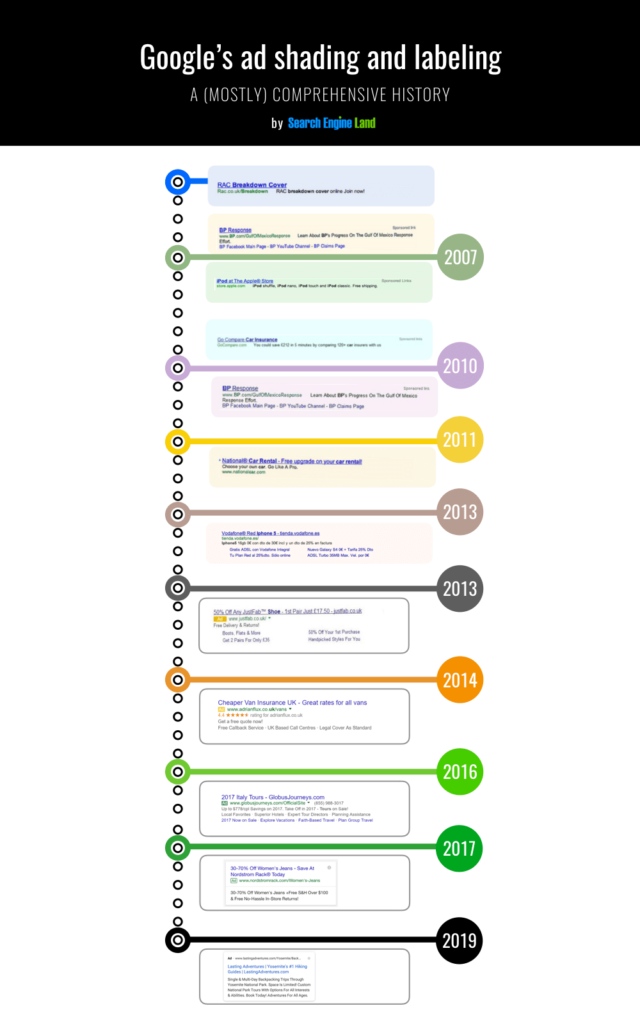

It’s compelling to remember back to a time when ads were so obvious they were highlighted. It’s almost as if the original user interface engineers wanted to make sure you knew it was an ad.
The graphic is a couple of years old and doesn’t account for the more visual ad types like product ads. In the case of product ads and some local service ads, they’re indiscernible from organic content.
Follow the Money
As this chart from Doofinder, an e-commerce site search provider, shows, ads are the most significant part of Google’s revenue.
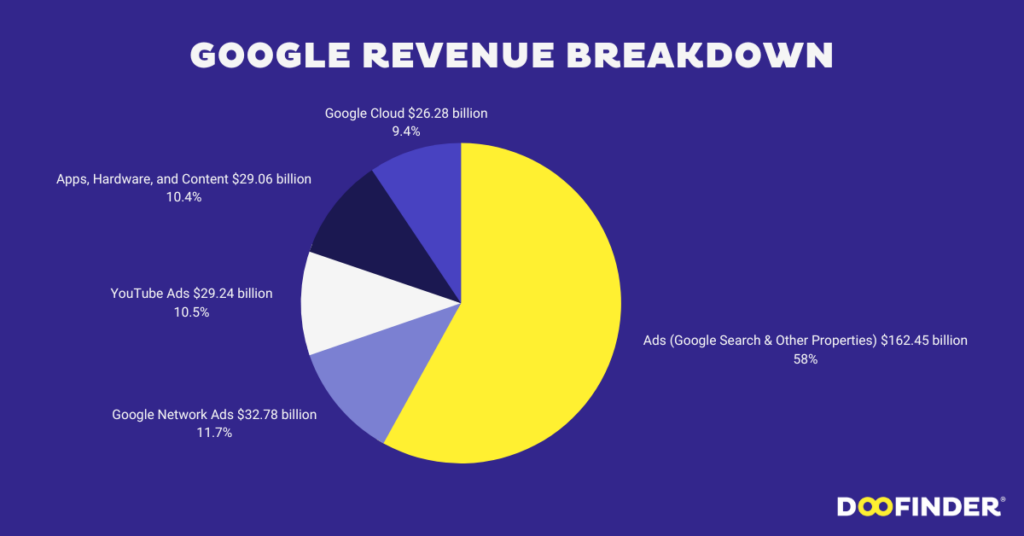

Yes, Facebook, Amazon, and TikTok all take their share of the digital advertising market, but Google is still far and wide the leader with the most to lose.
Why Is Google Doing This? Is This Ethical?
On socials, there’s argument over whether Google should be regulated or if they’re entitled to do whatever they want.
The argument goes, “They’re a public for-profit corporation, they can do as they please.” But can they? As the monopoly provider of access to business information, they have become a de-facto public utility.
In the 1990s, the telephone companies were forced to give up their listing data to competitive phone books, and in the early 2000s, Microsoft was sued for antitrust violations and made two separate parts of their business.
Is it crazy to think that when Google becomes self-serving (sometimes through aggressive — perhaps “unfair” competition), they should be regulated?
What are some reasons Google would be taking this approach?
- Greed: It’s their search engine, and they can do what they want. The free listings aren’t paying anything, and they’re seeing benefits from inclusion.
- Spam: AI content is flooding the internet (not throwing stones, by the way.) Google has recently had issues indexing all the content.
- Resources: Indexing is hard. Even excluding spam, the rate of content production from “reputable” publishers is accelerating.
- Reality: The search engine results pages are getting pretty crappy. For most searches, authority sites dominate, whether or not they are niche-relevant. Some at Google might argue they at least have validation, by payment, of the trustworthiness of their advertisers.
The European Union has started to regulate big tech, but the U.S. is not there yet. Arguably, the effect of regulation in the EU is a drop in the bucket compared to the valuations of Google, Facebook, and Amazon.
We May Be on Our Way to a Pay-to-Play Google
Until and unless Google reverts the SERP, we may have to buy back our hard-earned ranking for non-local searches.
As an agency and a business owner, this is frustrating. We will have to watch the evolving SERP to understand the ratio between paid and organic search needs to maintain and grow the number of leads we’ve been accustomed to.
I know that organic SEO will continue to deliver leads and value. While we wait to see the final form of the Google SERP, we should be focused on two strategies:
- Suck it up and buy our previously high-converting keywords.
- Continue developing content.
- Long-tail content where there are fewer ads.
- Alternative channels: YouTube, Social Media, etc. — the good news on this front is it doesn’t have to be new and unique but just repackaged for the medium.
We would love to hear your thoughts. Are you seeing the same thing? Is it time to break up Alphabet? What else should we be looking for?
Postscript – Google Ads 2023 Before & After Pics
I was asked to provide some screenshots of the new fat ads pack by our marketing associate and had surprisingly few SERP screenshots. The two below show the extreme nature of the Google Ads 2023 SERP smackdown.
Gold IRA Today
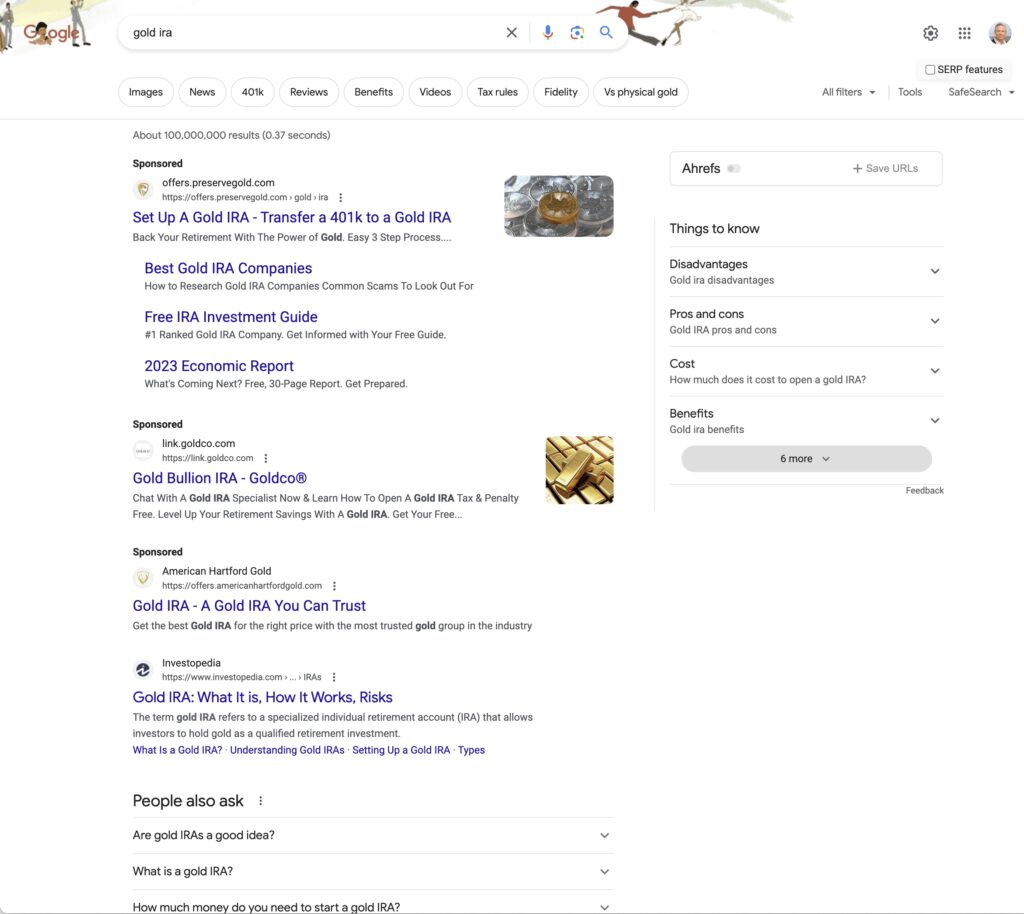
Gold IRA April 2023
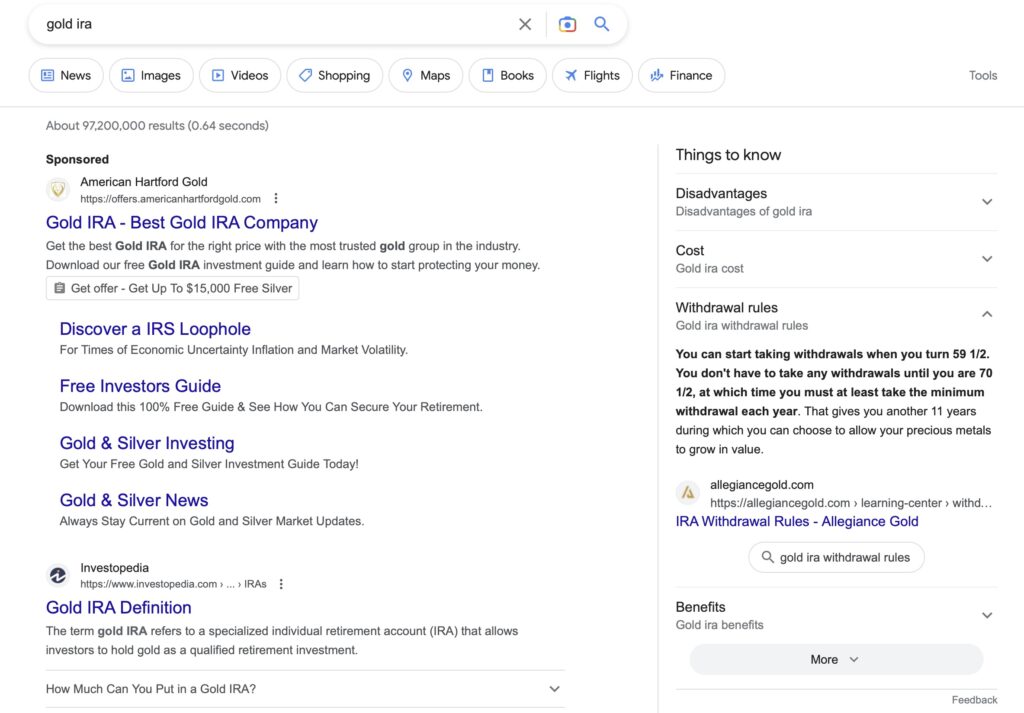
Online Bachelor’s Degree in Human Resources Today
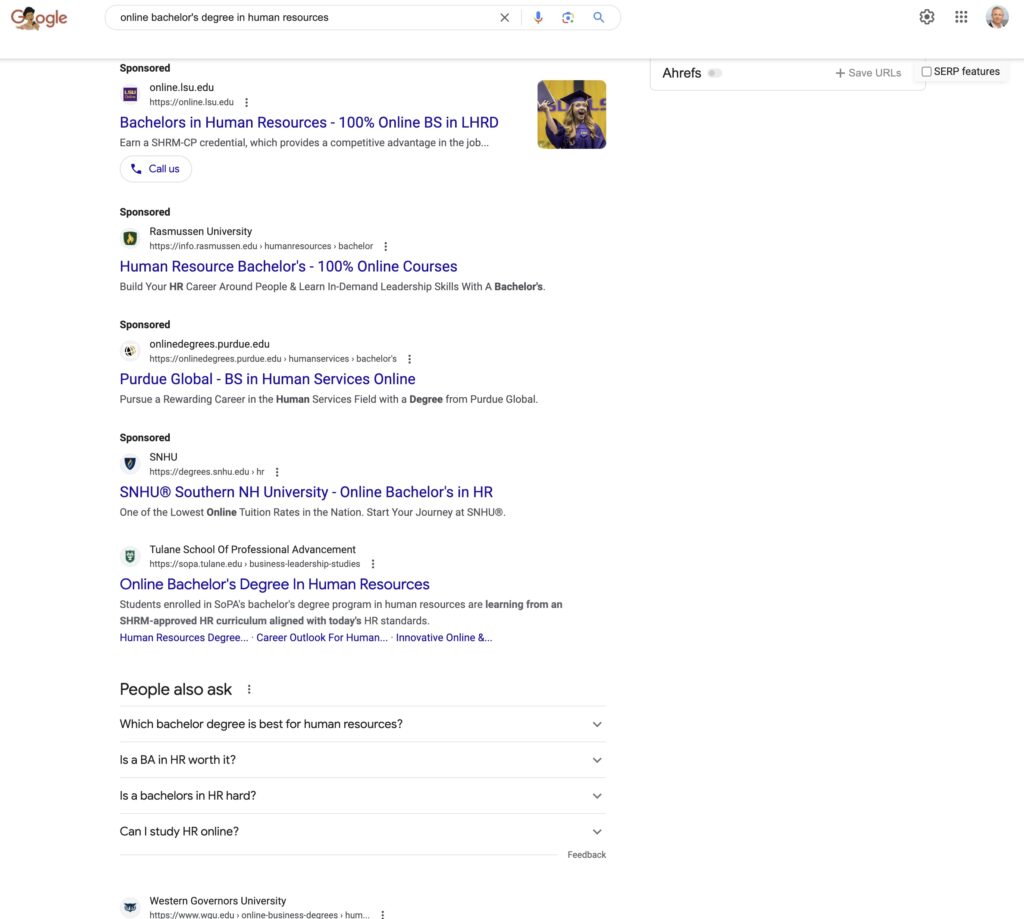
Online Bachelor’s Degree in Human Resources March 2023
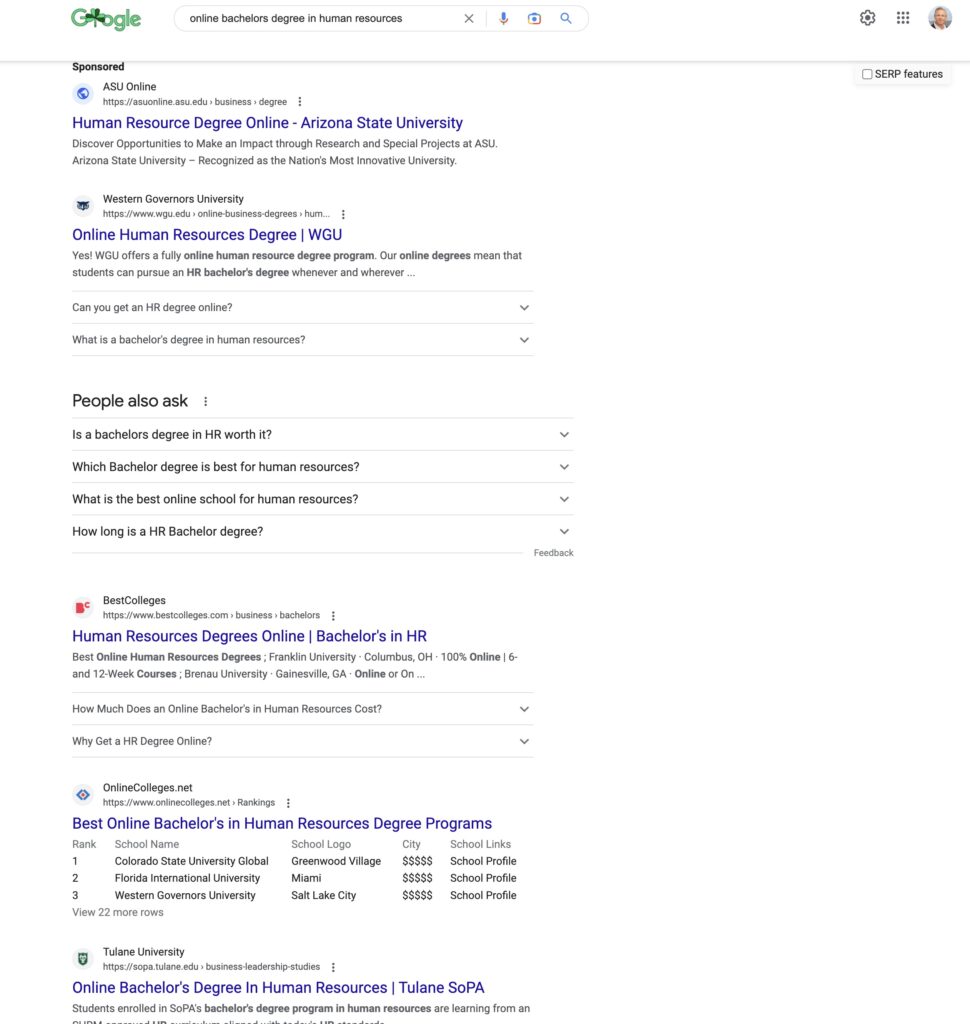
Additional References
Everything wrong with Google in one competitive result – Cyrus Shepard
How Search Generative Experience works and why retrieval-augmented generation is our future – Mike King

